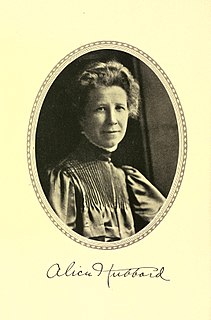A Quote by Lillian B. Rubin
In our minds lives the madonna image--the all-embracing, all- giving tranquil mother of a Raphael painting, one child at her breast, another at her feet; a woman fulfilled, one who asks nothing more than to nurture and nourish. This creature of fantasy, this myth, is the model--the unattainable ideal against which women measure, not only their performance, but their feelings about being mothers.
Related Quotes
A mother should have some fantasy about her child's future. It will increase her interest in the child, for one thing. To turn the fantasy into a program to make the child fly an airplane across the country, for example, isn't the point. That's the fulfillment of the parent's own dreams. That's different. Having a fantasy - which the child will either seek to fulfill or rebel against furiously - at least gives a child some expectation to meet or reject.
The narcissistic, the domineering, the possessive woman can succeed in being a "loving" mother as long as the child is small. Only the really loving woman, the woman who is happier in giving than in taking, who is firmly rooted in her own existence, can be a loving mother when the child is in the process of separation.
The art of not experiencing feelings. A child can experience her feelings only when there is somebody there who accepts her fully, understands her, and supports her. If that person is missing, if the child must risk losing the mother's love of her substitute in order to feel, then she will repress emotions.
Never compare one student's test score to another's. Always measure a child's progress against her past performance. There will always be a better reader, mathematician, or baseball player. Our goal is to help each student become as special as she can be as an individual--not to be more special than the kid sitting next to her.
I think we spend a lot of time denying our mothers. We understand other women earlier than we understand our mothers because we're trying so hard to say, "I'm not going to be like my mother" that we blame her for her condition. If we didn't blame her for her condition, we would have to admit that it could happen to us, too. I spent a long time doing that, thinking that my mother's problems were uniquely her fault.
The plainest man that can convince a woman that he is really in love with her has done more to make her in love with him than the handsomest man, if he can produce no such conviction. For the love of woman is a shoot, not a seed, and flourishes most vigorously only when ingrafted on that love which is rooted in the breast of another.
When a woman is frozen of feeling, when she can no longer feel herself, when her blood, her passion, no longer reach the extremities of her psyche, when she is desperate; then a fantasy life is far more pleasurable than anything else she can set her sights upon. Her little match lights, because they have no wood to burn, instead burn up the psyche as though it were a big dry log. The psyche begins to play tricks on itself; it lives now in the fantasy fire of all yearning fulfilled. This kind of fantasizing is like a lie: If you tell it often enough, you begin to believe it.
In a world full of war, famine, oppression, deceit, monotony, what—apart from the eternal innocence of animals—offers an image of hope? A mother with a newborn child in her arms? The child may end up as a murderer or a murder victim, so that the hopeful image is a prefiguration of a pietà: a mother with her newly dead child on her lap.
Motherhood involves a special communion with the mystery of life, as it develops in the mother's womb. The mother is filled with wonder at this mystery of life, and 'understands' with unique intuition what is happening inside her. In the light of the 'beginning', the mother accepts and loves as a person the child she is carrying in her womb. This unique contact with the new human being developing within her gives rise to an attitude towards human beings - not only towards her own child, but every human being - which profoundly marks the woman's personality.
Madonna has a far profounder vision of sex than do the feminists. She sees both the animality and the artifice. Changing her costume style and hair color virtually every month, Madonna embodies the eternal values of beauty and pleasure. Feminism says, 'No more masks.' Madonna says we are nothing but masks. Through her enormous impact on young women around the world, Madonna is the future of feminism.
I’m very worried about the depiction of women on the screen. It’s gotten worse than ever and it’s related to their being either high- or low-class concubines, and the only question is when or where they will go to bed, with whom, and how many. There’s nothing to do with the dreams of women, or of woman as the dream, nothing to do with the quirky part of her, the wonder of her.
Every act of motherhood contains a dual intent, as the mother holds the child close and prepares it to move way from her, as she supports the child and stands it firmly on its own feet, and as she guards it against danger and sends it out across the yard, down by the stream, and across the traffic-crowded highway. Unless a mother can do both - gather her child close and turn her child out toward the world - she will fail in her purpose.
The curse which lies upon marriage is that too often the individuals are joined in their weakness rather than in their strength -each asking from the other instead of finding pleasure in giving. It is even more deceptive to dream of gaining through the child a plenitude, a warmth, a value, which one is unable to create for oneself; the child brings joy only to the woman who is capable of disinterestedly desiring the happiness of another, to one who without being wrapped up in self seeks to transcend her own existence.



































